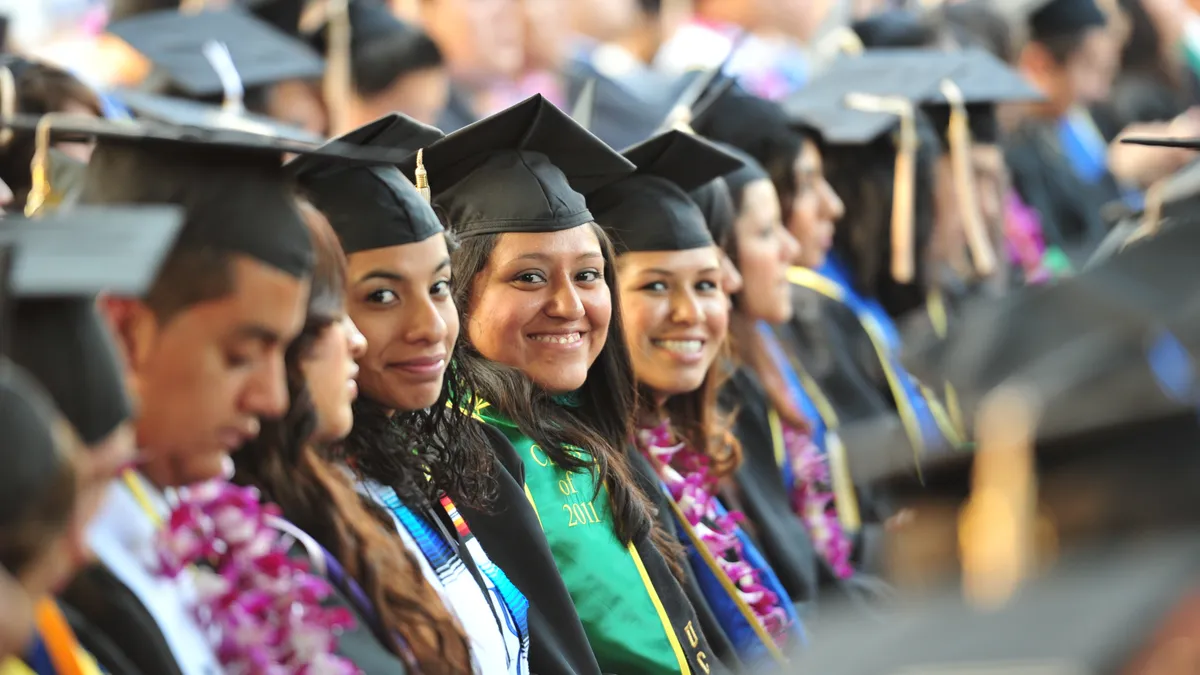Dive Brief:
-
Hispanic students are just as interested in STEM careers as their white and Asian peers but remain underrepresented in STEM occupations, according to the Gen Z Hispanics and STEM report released Thursday by the Student Research Foundation.
-
Findings say only 20% of Hispanic high school seniors report taking seven or more STEM classes, compared to 31% of over-represented groups of white and Asian students. Hispanic students also have lower GPAs than their peers, and only 42% of Hispanic seniors taking seven or more STEM courses report confidence in the subjects, compared to 53% of the over-represented groups.
-
Also, 26% of Hispanic students plan to attend community college, compared to 14% of their white and Asian peers. And while female Hispanic students report higher grades than their male peers, only 28% aspire to enter a STEM field compared to 64% of their male counterparts.
Dive Insight:
The report — produced in partnership with Hispanic Heritage Foundation (HHF), YWCA USA and Google.org — urges schools to continue supporting Hispanic students as they pursue STEM courses and careers, and to provide equitable access to high-quality STEM curriculum. It also suggests educators and other supportive adults should continue to encourage and mentor Hispanic students in the STEM fields, especially female ones.
“STEM fields are missing out on too many talented Hispanic students because of a lack of confidence and preparation — not a lack of aspiration or potential,” Jose Antonio Tjierino, President and CEO of the Hispanic Heritage Foundation said in a statement. “Evidence-based interventions to retain more Hispanics in the STEM pipeline can help more students achieve their dreams, provide the U.S. with the talent to fill STEM jobs, and maximize America’s potential to leverage our unique advantage in global competition: our diversity.”
The Committee On Science, Space & Technology shares several STEM learning resources on its site, and many links include Spanish instruction. The videos are well-suited to the current era of online learning. JoVE, the Journal of Visualized Experiments, is also offering free access to its STEM education video library to inspire students in STEM during school closures.
The transition to online learning is especially challenging for English learners, who are already struggling to adapt. Among educators who've developed strategies on this front is Kentucky teacher Cheri Mann, who creates a daily spreadsheet and walks through each day’s lessons on the phone. She also sends the assignments via text to those who don’t have computer access.







 Dive Awards
Dive Awards





